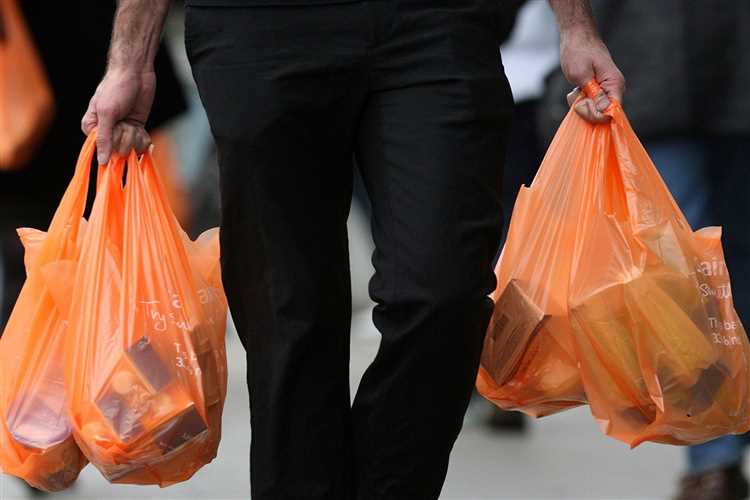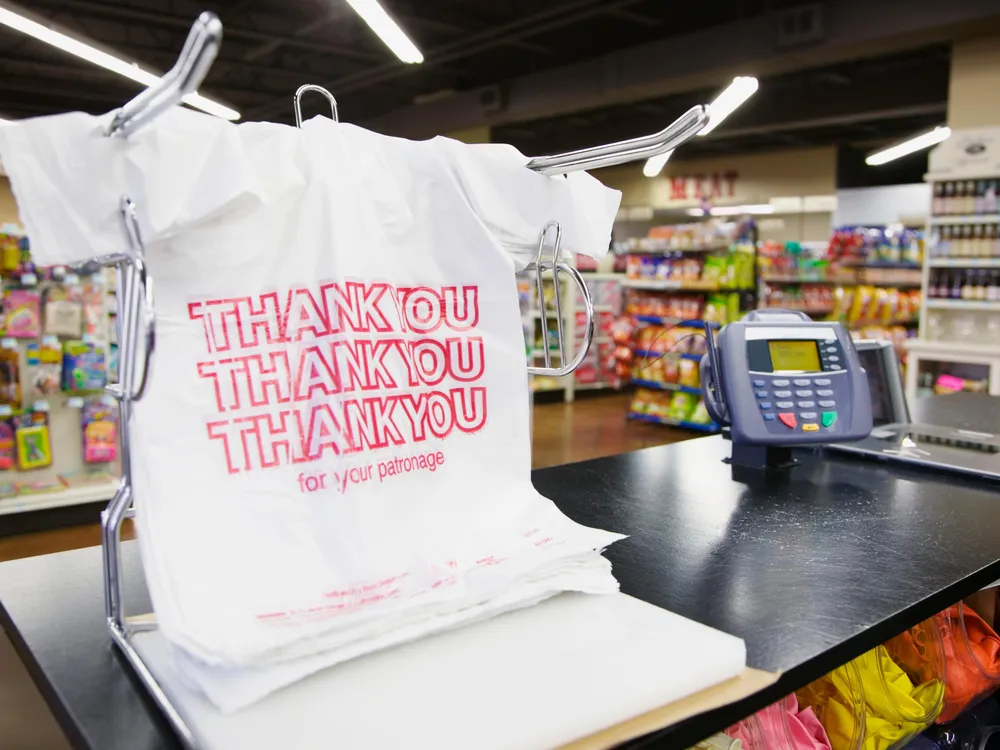In recent years, there has been a growing concern about the environmental impact of plastic bags. To address this issue, many countries and cities around the world have implemented measures to reduce the usage of plastic bags, one of which is charging for them.
The idea behind charging for plastic bags is to create an economic incentive for consumers to bring their own reusable bags or opt for alternatives, such as paper bags or biodegradable options. By putting a price on plastic bags, the hope is that people will become more conscious of their usage and make more sustainable choices.
Several studies have been conducted to determine the effectiveness of charging for plastic bags in reducing their usage. The results have been mixed, with some studies showing a significant decrease in plastic bag consumption, while others have found little or no impact.
One of the challenges in evaluating the impact of charging for plastic bags is the potential for unintended consequences. For example, in some cases, consumers may switch to using thicker, reusable plastic bags, which can have a higher environmental footprint than single-use bags. Additionally, charging for plastic bags may disproportionately affect low-income individuals who may not have the means to purchase alternative bags.
While charging for plastic bags may not be a silver bullet solution to the plastic waste problem, it is undoubtedly a step in the right direction. It serves as a reminder to consumers of the environmental consequences of their choices and encourages them to think twice before accepting a plastic bag. Ultimately, reducing plastic bag usage requires a combination of measures, including promoting reusable bags, investing in recycling infrastructure, and fostering a culture of sustainability.
- The Impact of Charging for Plastic Bags
- Environmental Benefits
- Reduces Marine Pollution
- Decreases Landfill Waste
- Conserves Natural Resources
- Reduction in Plastic Waste
- Impact of Charging for Plastic Bags
- Government Regulations and Initiatives
- Consumer Behavior
- FAQ:
- Has charging for plastic bags reduced their usage?
- How effective is charging for plastic bags in reducing their usage?
- What are the benefits of charging for plastic bags?
- Are there any drawbacks to charging for plastic bags?
The Impact of Charging for Plastic Bags
The introduction of charges for plastic bags has had a significant impact on their usage and the environment. This policy has been implemented in many countries and has proved to be an effective way to reduce plastic waste and encourage sustainable behavior.
Firstly, charging for plastic bags has led to a decrease in their consumption. With the introduction of a small fee for each bag, consumers are now more likely to bring their own reusable bags when shopping. This change in behavior has resulted in a significant reduction in the number of plastic bags being used and disposed of.
Secondly, the environmental benefits of charging for plastic bags are evident. Plastic bags are a major contributor to environmental pollution, particularly in aquatic ecosystems. By reducing the usage of plastic bags, it is possible to mitigate the negative impacts on wildlife and the natural environment. Additionally, fewer plastic bags in landfills and oceans alleviate the burden on waste management systems and reduce the amount of plastic waste that ends up in our oceans.
Furthermore, charging for plastic bags has also provided an economic incentive for businesses to adopt more sustainable practices. Retailers are encouraged to offer alternative options, such as reusable bags or paper bags, which are generally more environmentally friendly. This shift towards sustainable packaging solutions not only reduces the reliance on plastic bags but also promotes a more responsible approach to packaging and waste management.
In conclusion, the introduction of charges for plastic bags has had a positive and tangible impact on their usage and the environment. It has led to a reduction in consumption, decreased environmental pollution, and encouraged businesses to adopt more sustainable practices. This policy has proven to be an effective tool in promoting behavior change towards a more sustainable and eco-friendly society.
Environmental Benefits

Implementing a charge for plastic bags has resulted in significant environmental benefits. Here are some of the key advantages:
Reduces Marine Pollution
One of the primary environmental benefits of charging for plastic bags is a reduction in marine pollution. Plastic bags are frequently discarded in waterways and oceans, posing a significant threat to marine life. They can be mistaken for food by marine animals, leading to ingestion and entanglement. By discouraging the use of plastic bags through charges, the amount of plastic waste entering our oceans is significantly reduced, helping to protect marine ecosystems.
Decreases Landfill Waste
Another important environmental benefit of charging for plastic bags is a decrease in landfill waste. Plastic bags are not biodegradable and can take hundreds of years to break down. As a result, they accumulate in landfills, occupying valuable space and releasing harmful greenhouse gas emissions. By encouraging the use of reusable or biodegradable alternatives, the number of plastic bags ending up in landfills is significantly reduced, contributing to a more sustainable waste management system.
Conserves Natural Resources
The implementation of a charge for plastic bags also helps to conserve natural resources. The production of plastic bags requires the extraction and consumption of fossil fuels, contributing to carbon emissions and depletion of finite resources. By reducing the demand for plastic bags, fewer resources are required for their production, leading to a decrease in environmental impact. This conservation effort supports the transition to a more sustainable and renewable resource-based economy.
In conclusion, charging for plastic bags has proven to have significant environmental benefits. It helps reduce marine pollution, decreases landfill waste, and conserves natural resources. By implementing this measure, we can contribute to the preservation of our ecosystems and create a more sustainable future.
Reduction in Plastic Waste
Implementing charges for plastic bags has been effective in reducing the usage of single-use plastic and consequently, the amount of plastic waste generated. The introduction of small fees or taxes on plastic bags has proven to be a successful strategy in many countries around the world.
Impact of Charging for Plastic Bags
The implementation of charges on plastic bags has resulted in a significant decrease in their consumption. Studies have shown that when consumers are required to pay for plastic bags, they are more likely to bring their own reusable bags or opt for alternative options, such as paper bags or biodegradable alternatives. This shift in consumer behavior has led to a reduction in plastic waste at both individual and societal levels.
The reduction in plastic waste has multiple positive effects on the environment. Plastic bags are a major source of pollution, contributing to issues such as marine debris and the contamination of land and water ecosystems. By reducing the usage of plastic bags, the amount of plastic waste that ends up in landfills, water bodies, and natural habitats is significantly reduced.
Government Regulations and Initiatives
Many governments have recognized the importance of reducing plastic waste and have implemented regulations to address the issue. Charging for plastic bags is often part of a broader strategy to promote sustainable practices and reduce the negative environmental impact caused by plastic waste.
These regulations are typically accompanied by public awareness campaigns and educational initiatives that aim to inform the public about the negative consequences of plastic waste and encourage them to make more sustainable choices. By combining the implementation of charges with educational efforts, governments can effectively reduce the usage of plastic bags and foster a culture of sustainability.
The success of charging for plastic bags in reducing plastic waste has encouraged many countries to consider or expand similar initiatives. Additionally, some regions have gone further by banning certain types of single-use plastics altogether, further reducing the environmental impact caused by plastic waste.
| Benefits of Charging for Plastic Bags |
|---|
| Reduces plastic waste |
| Promotes the use of reusable bags |
| Encourages sustainable consumer behavior |
| Protects ecosystems and reduces pollution |
In conclusion, charging for plastic bags has proven to be an effective measure in reducing plastic waste. By implementing charges, governments can incentivize consumers to adopt more sustainable alternatives, resulting in a positive impact on the environment. Through the combination of regulations, educational initiatives, and public awareness campaigns, further progress can be achieved in tackling the issue of plastic waste.
Consumer Behavior

Charging for plastic bags has had a significant impact on consumer behavior. People have become more conscious of the environmental impact of plastic bags and are incentivized to bring their own reusable bags when shopping. This change in consumer behavior is evident through various surveys and studies conducted after the implementation of plastic bag charges.
- Increased Use of Reusable Bags: The introduction of plastic bag charges has led to a surge in the use of reusable bags. Many consumers now proactively bring their own bags to stores to avoid paying for plastic bags. This shift in behavior indicates an increased awareness of the environmental consequences of single-use plastic bags.
- Reduced Plastic Bag Consumption: The charging for plastic bags has resulted in a significant reduction in their usage. Consumers are now more mindful of their consumption and tend to avoid using unnecessary plastic bags. This reduction has had a positive impact on the environment, as fewer single-use bags end up in landfills or as litter.
- Behavioral Change in Shopping Habits: The implementation of plastic bag charges has also influenced consumer shopping habits. Consumers are more likely to plan their shopping in advance and consider the number of bags they will need. This change in behavior reflects a conscious effort to minimize plastic waste and shows a shift towards more sustainable consumer choices.
- Increased Awareness and Education: The plastic bag charges have helped raise awareness among consumers about the environmental impact of plastic bags. Many individuals were previously unaware of the consequences of their plastic bag usage. However, with the introduction of charges, consumers have become more informed and educated about the need to reduce plastic consumption.
In conclusion, charging for plastic bags has had a positive impact on consumer behavior. It has encouraged the use of reusable bags, reduced plastic bag consumption, influenced shopping habits, and increased environmental awareness. These changes in consumer behavior are essential steps towards a more sustainable and eco-friendly society.
FAQ:
Has charging for plastic bags reduced their usage?
Yes, charging for plastic bags has significantly reduced their usage in many countries. Studies have shown that implementing a small fee for plastic bags has led to a significant decrease in their consumption.
How effective is charging for plastic bags in reducing their usage?
Charging for plastic bags has proven to be an effective measure in reducing their usage. Many countries have seen a significant decrease in plastic bag consumption after implementing a small fee. Studies have shown that the charging scheme has led to behavioral changes, with people opting to bring their own reusable bags instead of relying on single-use plastic bags.
What are the benefits of charging for plastic bags?
Charging for plastic bags has several benefits. Firstly, it reduces the demand for single-use plastic bags, which helps to decrease plastic pollution and its impact on the environment. It also encourages the use of reusable bags, which are more sustainable. Additionally, the revenue generated from the bag charges can be used for environmental initiatives or to support local communities.
Are there any drawbacks to charging for plastic bags?
While charging for plastic bags has proven to be effective in reducing their usage, there are some drawbacks to consider. Some people argue that it disproportionately affects low-income individuals who may not be able to afford the extra cost. Moreover, there is a concern that charging for bags could lead to an increase in the consumption of heavier plastic bags that have a higher environmental impact. However, these potential drawbacks can be mitigated through proper implementation and awareness campaigns.